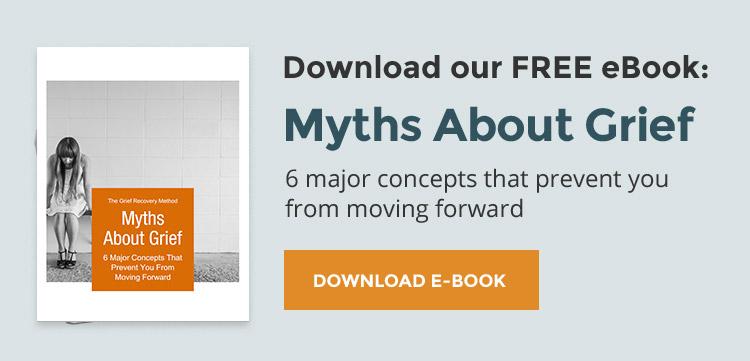This is the second in a four-part series about programs that offer support for grief. In Part One, we made a general distinction between bereavement groups and structured groups, with each providing different kinds of support for grief. We talked about the fact that bereavement groups generally create a safe environment in which grieving people can talk openly about their thoughts and feelings after the death of someone important to them. On the other hand, structured groups like the Grief Recovery Method Support Group, present a recovery-based system of actions aimed at guiding grievers to discover and complete what was left emotionally unfinished for them as the result of a death, a divorce, or other kinds of losses. Another distinction between those two main types of groups is that many bereavement groups are limited to people who are dealing with a death, and are often organized around a specific loss, like death of a spouse, or death of a child. Grief Recovery Support Groups are not limited to death, or even divorce, and include all grief-producing losses.
Support For Grief: All Relationships Are Unique
There’s an incorrect notion that only people who’ve had the same experience as you can understand your grief. There are two major flaws in that idea. One is that there ever is a “same experience.” Since all relationships are unique and all grief is individual, no one ever has the same experience. Yes, there may be people who can relate to your experience, as you might to theirs, but that’s where the parallel ends. The second flaw is the idea of anyone understanding your grief. Grief is a feeling, not an intellectual concept that can or should be understood. Even when you understand what caused the grief or why it happened, the emotional impact is not lessened. On the positive side, we appreciate the fact that bereavement support groups can provide a valuable service to those people who feel tremendously isolated after a death. In addition to having a safe place to talk openly without being judged, grievers can gain a lot of practical guidance in learning to adapt to the changed circumstances of their life following the death. But open sharing of feelings and learning how to deal with life are not all that’s needed. The missing element is the discovery and completion of what was left emotionally incomplete by the death or divorce or other loss. The best example we can give is to tell of two widows who attended one of our Grief Recovery Support Groups. One of the women described the wonderful—but not perfect—relationship she’d had with her husband for 40 years. The other woman told a miserable tale of a stormy relationship clouded with alcohol and mistreatment, also over a 40 year time span. It’s easy enough to recognize that while both women were widows, they had nothing more than that fact in common, and that neither of them could really “understand” or relate to the other. But even if both had had warm and fuzzy relationships with their spouses who had died, they still wouldn’t be connected to the uniqueness of the other’s relationship. So while support in the form of a safe place to talk about our emotions and to learn tools to adapt is fine, it doesn’t replace the need to take actions of completion based on the title of this blog:
“All Relationships Are Unique; Therefore All Recovery Is Individual.”
Image credit: ryzhkovoleksandr / 123RF Stock Photo

























Add new comment